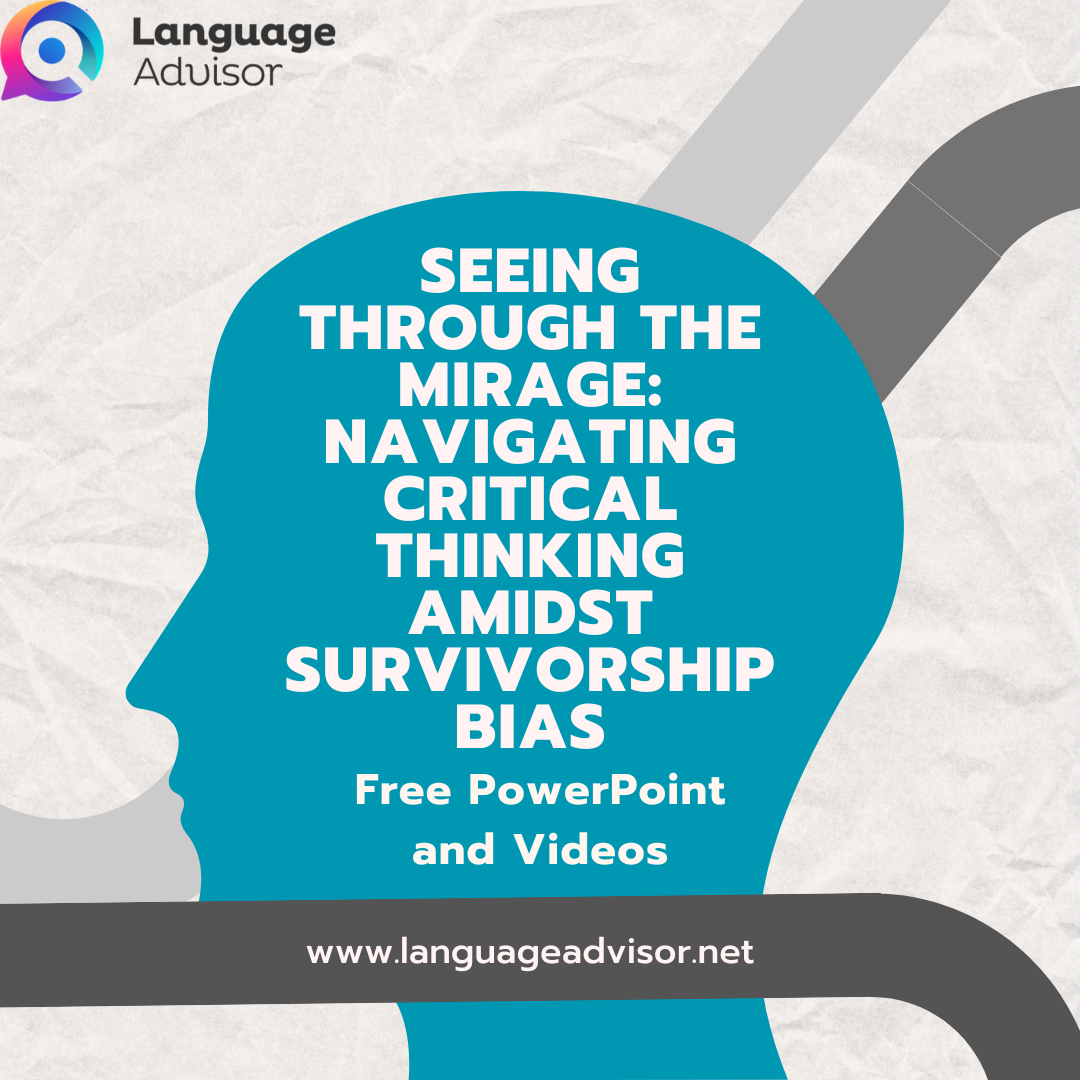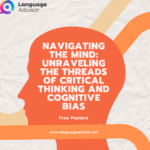Seeing Through the Mirage: Navigating Critical Thinking Amidst Survivorship Bias – Free PowerPoint and Video
Seeing Through the Mirage: Navigating Critical Thinking Amidst Survivorship Bias

In the vast expanse of cognitive biases, understanding how survivorship bias shapes our perceptions is essential for cultivating a discerning approach to success, failure, and decision-making.
- Critical Thinking: Illuminating the Shadows of Survivorship Bias: Discover the essence of critical thinking as our guiding torch through the complex landscape of cognitive biases. Critical thinking becomes the beacon that empowers us to navigate the pitfalls of Survivorship Bias, fostering a nuanced understanding of the hidden stories behind success and failure.
- Survivorship Bias Unveiled: The Illusion of the Visible Few: Peer into the psychology of Survivorship Bias, where our attention is drawn to the survivors, leading us to overlook the silent stories of those who did not succeed. Explore how this cognitive bias creates an illusion of causation, distorting our perception of the factors contributing to success.
- Real-world Implications: Navigating the Unseen Consequences: Examine real-world scenarios illustrating the tangible impact of Survivorship Bias on decision-making in various fields. From business strategies to personal development, we dissect instances where the focus on success stories may lead to flawed conclusions and ineffective choices.
- Critical Thinking Strategies Against Survivorship Bias: Equip yourself with the tools of critical thinking to navigate the shadows of Survivorship Bias. This section offers practical strategies and exercises to cultivate a discerning mindset, encouraging individuals to consider both the seen and the unseen, and to question the assumptions that underlie success narratives.
- Breaking the Illusion: Applying Critical Thinking in Assessing Success: Break free from the constraints of Survivorship Bias in various aspects of life. Through the lens of critical thinking, explore how individuals can foster a mindset that values a comprehensive view of data, promoting a more informed and realistic approach to understanding success and failure.
As we conclude our exploration, it’s evident that critical thinking serves as a compass through the shadows of Survivorship Bias. In our pursuit of understanding success, let us embrace a mindset that values a comprehensive perspective and acknowledges the silent stories that often go untold.
Join us on this journey towards cognitive clarity, where critical thinking reigns supreme, and success is examined with an open and discerning mind with these free Power Point and Video

Power Point – Survivorship Bias
DOWNLOAD THE POWER POINT FOR FREE
Seeing Through the Mirage: Navigating Critical Thinking Amidst Survivorship Bias
Video: 12 Cognitive Bias

Also check out these free resources on Critical Thinking and Cognitive Bias















